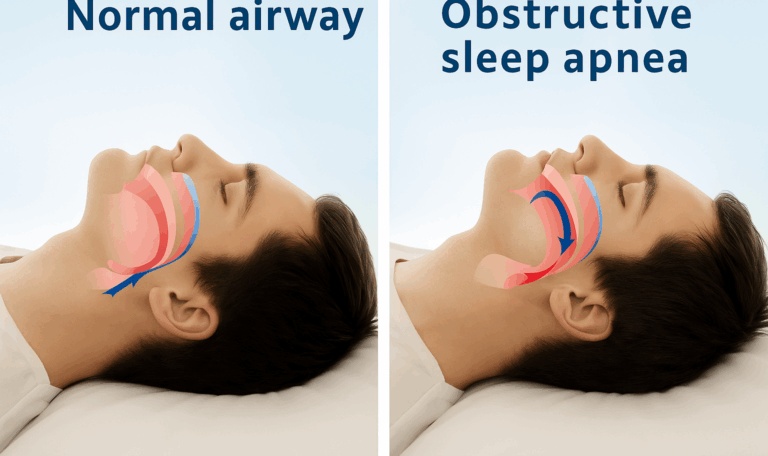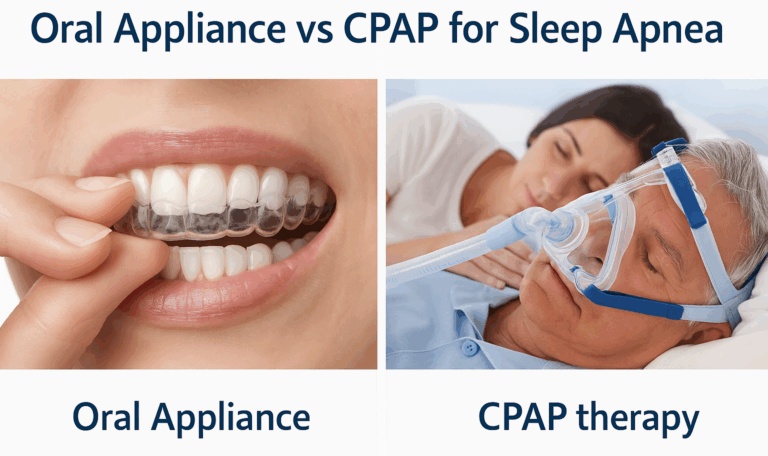What Is Sleep Apnea?
Sleep apnea is a common sleep disorder where breathing repeatedly stops and starts during the night. The most frequent type, known as obstructive sleep apnea (OSA), happens when the throat muscles relax and block the airway. This often causes loud snoring, gasping, and disrupted sleep. Left untreated, the condition may lead to high blood pressure, heart disease, fatigue, and difficulty concentrating.
Our Solution: Oral Appliance Therapy
We offer oral appliance therapy as a comfortable, non-invasive treatment option for mild to moderate OSA. The custom-made oral device fits like a mouthguard and gently repositions the jaw and tongue to keep the airway open during sleep. It’s an effective alternative to CPAP for many patients and is easy to wear, travel with, and maintain.

Types of Sleep Apnea
There are several forms of sleep disorder, but the most common is obstructive sleep apnea (OSA). This condition occurs when the muscles in the throat relax excessively, blocking the airway. Another form, central sleep apnea, happens when the brain fails to send proper signals to the muscles that control breathing. Some patients may experience a combination known as complex sleep apnea syndrome. Understanding these types is essential because the right treatment depends on the underlying cause.
Common Symptoms of This Sleep Disorder
If you’re wondering whether you might have OSA, look for these signs:
- Loud and chronic snoring
- Waking up gasping or choking
- Morning headaches or dry mouth
- Daytime fatigue or drowsiness
- Difficulty concentrating
Health Risks of Untreated Breathing Disorders
Ignoring this nighttime breathing condition can increase serious health risks. It puts strain on the heart and raises the chance of hypertension, stroke, and diabetes. Beyond physical health, untreated OSA often leads to memory issues, mood changes, and lower productivity during the day. Addressing it early greatly reduces these risks.
Our Oral Appliance Therapy vs. CPAP

While CPAP machines are a standard treatment for breathing disorder during sleep, many patients struggle with the discomfort and maintenance of the device. Our oral appliance therapy offers a simpler, travel-friendly solution. The device gently repositions your jaw and tongue to keep your airway open. It is small, comfortable, and easy to use every night. To learn more about dental solutions for sleep apnea, explore our services page.
When to Get Professional Help for Sleep Apnea
If you or a loved one shows signs of this condition, don’t wait to act. Early diagnosis and care can improve long-term health and restore quality of life. Contact our office today to learn whether oral appliance therapy is the right solution for your nighttime breathing disorder.
